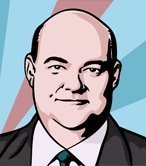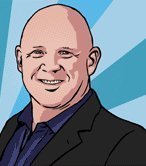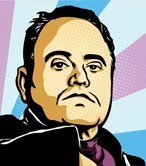
From Wall Street to Main Street to the presidential campaign trail, fears about the economy show no signs of abating -- and may actually be growing stronger. The unemployment rate still stubbornly tops 9 percent, consumer confidence is sliding and even the seemingly gravity-defying stock market has stumbled a bit in recent months. After an economic meltdown so dramatic that it inspired Hollywood movies both fictional ("Wall Street: Money Never Sleeps") and based on real-life events ("Too Big to Fail"), clearly we were going to need some time to dig out of the deep proverbial hole.
But two years have passed since the worst was supposedly over, and while we have certainly seen a few signs of life since then, the good times aren't exactly rolling just yet. And now, the threat of a "double-dip" recession is real enough that we're at least talking about it. (For all you lay people out there, a double-dipper is pretty much just what it sounds like -- broadly defined as a recession followed by a short-lived recovery, followed by another recession. The last one is generally considered to have occurred in the early 1980s.)
During the so-called Great Recession of the past few years, many small-business owners were forced to cut costs and cut staff, and have largely come to realize since then that they can simply do more with less, whether they want to or not. They're showing flashes of optimism -- as entrepreneurs, you'd expect nothing less from them -- but many continue to have serious questions about the economy and the overall direction of the country, which explains, for example, a jump in hiring temporary workers rather than full-time employees. And as every politician loves to remind us, small-business owners are the real "job creators" in the United States, so if they're skittish, we have a bit of a problem.
The members of our Board of Directors hail from a variety of industries and locales and generally have their collective hands on the pulse of the U.S. economy. So who better to ask about where we might be headed?

Ken Yancey
CEO, SCORE
"Based on the survey results that I have reviewed from a number of the groups that represent small business, few small-business owners believe that there has been any improvement in the economy, despite what we might have read in the news in past months. Recent economic reports are more consistent with the sentiment of small-business owners. Issues like the future of gas prices, federal and state budget deficits, related tax concerns, and access to capital and debt for small business have clearly impacted the small-business sector's contribution to a recovery. I don't believe that we will have a double dip, but I also don't believe that there will be real improvement until entrepreneurs and small-business owners are confident enough to take the risks necessary to start, expand and grow. Despite the overall low level of small-business owner confidence reported by the surveyors, many determined entrepreneurs are continuing to start and grow very successful businesses. We need that number to grow."

Phil Town
Investor And Author Of Rule #1 And Payback Time
"I think we're in the Stagflation Zone. We'll stagger from recession to barely out of it and all the while the value of our currency will decline against the yuan, the Swiss franc and gold. We will see gas at $10 per gallon within 10 years, $15 a gallon within 20. Unemployment will remain high. We added 500,000 jobs since May, 2010 but 90 percent of those came from temp agencies. The federal government has been piling on regulations, union issues, taxes and health insurance costs and entrepreneurs are not willing to risk permanent hires."The decisions of the current administration to elevate unions, encourage regulation and protect Wall Street and mega-corporations have left the vital small business engine without fuel. As you saw from her answers to our questions, the head of the SBA is clueless or powerless -- or both. There is no voice in this administration for the little guy who runs a business that provides jobs, but a lot of voices for the little guy who doesn't want one.
"There is no way that our small businesses can continue to grow the working wages of our employees with handicaps piled on by regulation, taxation, unionization, medication and general government obfuscation in a world with a China and an India in it scratching to get to the top. We either keep going down this road to ruin in the name of 'fairness' and 'equal opportunity' or we get back to the basics of freedom, liberty and hard work epitomized by small businesses that made America a great and wealthy nation."

Elizabeth Busch, Anne Frey-Mott And Beckie Jankiewicz
Co-Founders, The Event Studio
"I don't think we're headed for double-dip recession, but I do think we all need to be realistic and realize that we're never going back to the way things were. 'Recovery' will look like the current climate, just more robust -- where businesses are operating cautiously but still focused on growth and moving forward. Oustized budgets and irrational profits are gone. And that's a good thing."

Tate Chalk
Founder And CEO, Nfinity
"Are we headed for a double-dipper? At this point, I am not sure how we are going to avoid it. The housing market hasn't even hit bottom yet and we are set up for Round 2 -- that being loans for homes over $417,000 or 'jumbo loans.' When these loans were taken out in pre-meltdown times, you could get this kind of loan for zero down on an interest-only adjustable rate mortgage. Which was fantastic for the consumer. Interest rates were low and real-estate prices were going up."Fast-forward five years and these same loans (which are adjustable rate, remember) are starting to mature. That means possible refinancing. But now, with more strict banking standards, you need 30 percent equity in your home to refinance. With an interest-only loan and property values down 20 percent, how are you supposed to have 30 percent equity in the home? You can't. So you have to show up to the closing with $125,100, plus closing costs. How many people have that kind of cash lying around? The alternative is to keep the ARM and cross your fingers and hope for the best. Now, ARMs work fantastic as long as interest rates are relatively low -- but what if they go up? What if the U.S. government is injecting money into the economy without creating real value? When you print money, the only thing that can happen is inflation. So the dollar buys less. And the only way to battle inflation is the pull money out of the economy, and this will cause interest rates to rise. Remember, what would happen to this ARM when interest rates are high? Bad.
"A majority of these 'richest Americans' we have been hearing so much about are small-business owners who probably have one of these 'jumbo loans' with ARMs which, as these interest rates start to rise, are going to be forced to refinance or lose their homes. If they have to refinance under these new strict banking laws, where do you think they are going to pull the cash out of to keep from losing their home? Their small businesses. What other things do you think they could be doing with that $125,100? Oh I don't know -- paying employees maybe, creating jobs. Rather than having to eliminate them because their cash is otherwise engaged. So I am not sure that this is enough to make the economy double dip, but I do remember as a kid that the one thing you did not want to get was a 'relapse' of the flu. It was always 10 times worse the second time around."

Jennifer Hill
Startup Advisory And Venture Lawyer, Gunderson Dettmer LLP
"There's a distinct possibility of this occurring -- but the specific triggers and timing are unclear. With the rolloff of the economic stimulus in the United States, overheating issues in some of the BRICs [Brazil, Russia, India and China], the political uncertainty in Middle East and the euro debt crisis (to name a few) plenty of issues could trip the global and the U.S. economies. What's more interesting is that if there is double-dip recession, how will the United States rebound? How quickly? What have we learned to pull out faster and more effectively, so that our standards of living can continue, in the long run, to prosper?"

Bob Parsons
Founder And CEO, The Go Daddy Group
"Our economy is in a deep hole that is going to take time to dig our way out of. There are going to be setbacks along the way. That's tough when you are trying to make a business go. Compounding the problem, consumers are worried about where America is heading, so they continue to cut back on spending." It would definitely help if the U.S. tax structure was changed to give businesses money to promote investment and innovation here at home.
" It would definitely help if gas prices went down -- and stayed down.
"And by all means, it would definitely help if our government addressed the federal deficit -- now! Our federal bureaucracy needs to shrink, yet it continues to grow. Our economic problems are legion and quite simply they are not being dealt with, so another recession could be on its way.
"Still and all, the Internet has been a bright spot through the recession. I've always said the Internet is the heart of the new economy. Here at Go Daddy we are filling jobs, investing in the business and growing by double digits, so it's not all 'gloom and doom.'"

Rieva Lesonsky
Founder And CEO, GrowBiz Media
"I don't think there will be an 'official' double-dip recession. But we certainly have to do more to raise public confidence in the wobbly economy. If Congress would stop posturing and start working together to strengthen the country, that would certainly help."

Clint Greenleaf
Founder And CEO, Greenleaf Book Group
"It's either a double dip -- or the slowest recovery in history. Fits and starts are common in any recovery, so it's hard to tell. Best advice is to protect cash, hire smart and focus on smart growth."
The original version of this article appeared on AOL Small Business on 6/22/11.